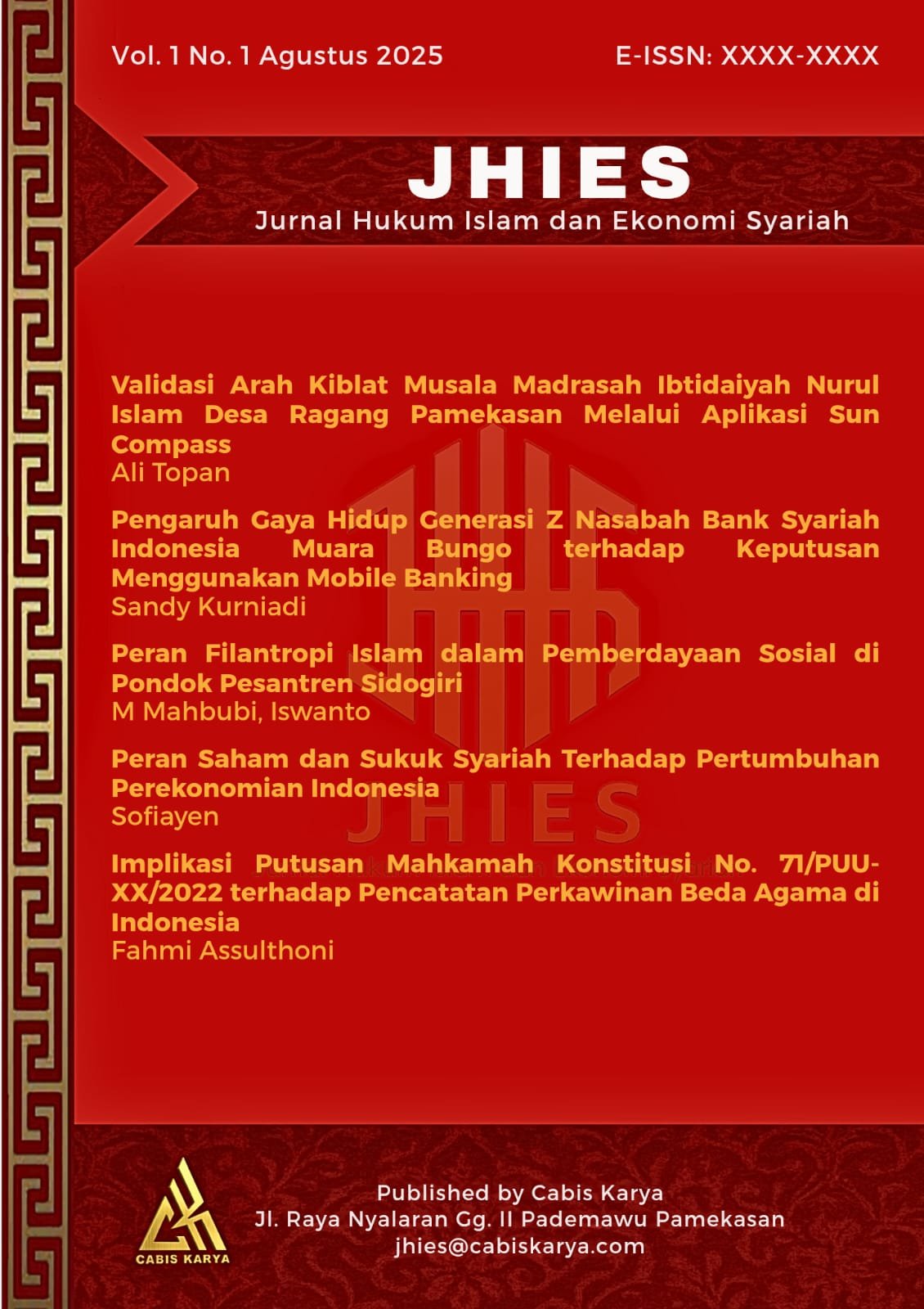The Role of Islamic Philanthropy in Social Empowerment at Sidogiri Islamic Boarding School
Keywords:
Philanthropy, Islamic Philanthropy, Social EmpowermentAbstract
This study aims to explore philanthropic practices at Pondok Pesantren Sidogiri, one of the largest and most influential Islamic boarding schools in Indonesia. The research focuses on how traditional Islamic philanthropic practices, such as zakat, infaq, sadaqah, and waqf, are integrated with modern instruments, including digital platforms and online donation systems. A qualitative approach with a case study method was employed, utilizing in-depth interviews, participatory observation, and document analysis. Data were analyzed thematically to identify patterns of practice and challenges in Sidogiri’s philanthropic activities. The findings reveal that zakat funds are allocated to provide free education for underprivileged students, while infaq and waqf contribute to community development programs, including healthcare, infrastructure, and social empowerment. Moreover, digital philanthropy, such as crowdfunding and mobile applications, has enhanced transparency, efficiency, and the global reach of Sidogiri’s initiatives. Nevertheless, challenges remain in the areas of digital literacy, management transparency, and balancing traditional practices with modern technology. This study concludes that Sidogiri’s philanthropic model has strong potential to be replicated by other Islamic institutions globally and offers valuable insights for strengthening accountability, outreach, and digital literacy in contemporary philanthropic practices.





